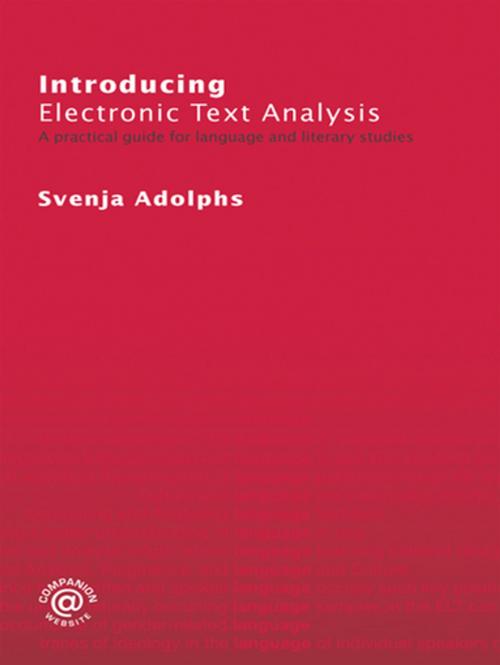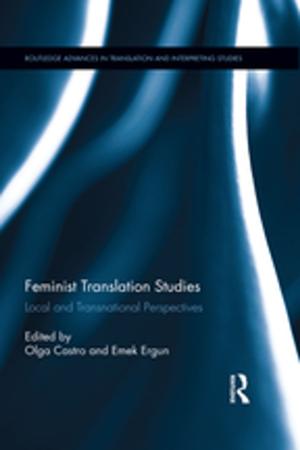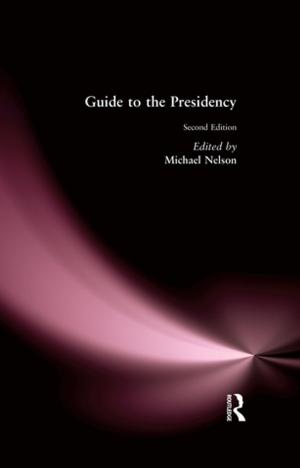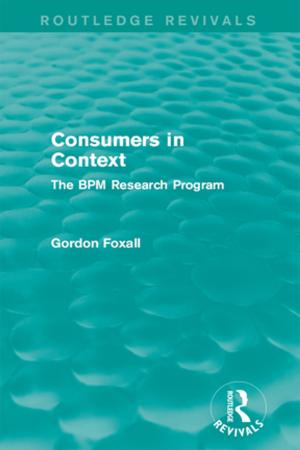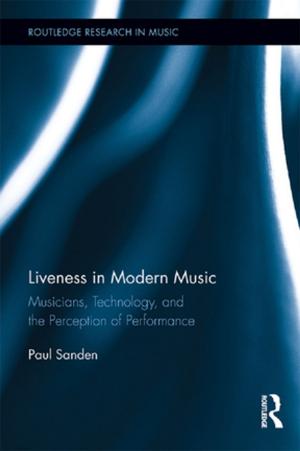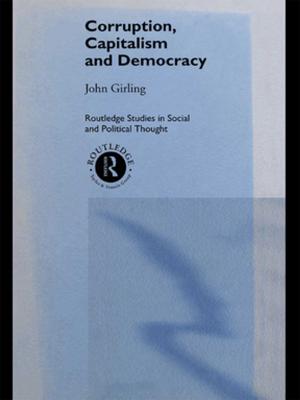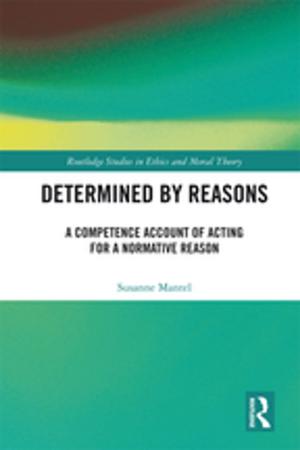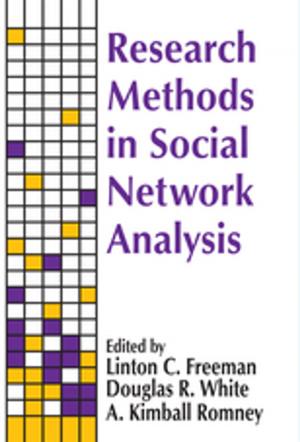Introducing Electronic Text Analysis
A Practical Guide for Language and Literary Studies
Nonfiction, Reference & Language, Language Arts, Linguistics| Author: | Svenja Adolphs | ISBN: | 9781134361588 |
| Publisher: | Taylor and Francis | Publication: | September 27, 2006 |
| Imprint: | Routledge | Language: | English |
| Author: | Svenja Adolphs |
| ISBN: | 9781134361588 |
| Publisher: | Taylor and Francis |
| Publication: | September 27, 2006 |
| Imprint: | Routledge |
| Language: | English |
Introducing Electronic Text Analysis is a practical and much needed introduction to corpora – bodies of linguistic data. Written specifically for students studying this topic for the first time, the book begins with a discussion of the underlying principles of electronic text analysis. It then examines how these corpora enhance our understanding of literary and non-literary works.
In the first section the author introduces the concepts of concordance and lexical frequency, concepts which are then applied to a range of areas of language study. Key areas examined are the use of on-line corpora to complement traditional stylistic analysis, and the ways in which methods such as concordance and frequency counts can reveal a particular ideology within a text.
Presenting an accessible and thorough understanding of the underlying principles of electronic text analysis, the book contains abundant illustrative examples and a glossary with definitions of main concepts. It will also be supported by a companion website with links to on-line corpora so that students can apply their knowledge to further study.
The accompanying website to this book can be found at http://www.routledge.com/textbooks/0415320216
Introducing Electronic Text Analysis is a practical and much needed introduction to corpora – bodies of linguistic data. Written specifically for students studying this topic for the first time, the book begins with a discussion of the underlying principles of electronic text analysis. It then examines how these corpora enhance our understanding of literary and non-literary works.
In the first section the author introduces the concepts of concordance and lexical frequency, concepts which are then applied to a range of areas of language study. Key areas examined are the use of on-line corpora to complement traditional stylistic analysis, and the ways in which methods such as concordance and frequency counts can reveal a particular ideology within a text.
Presenting an accessible and thorough understanding of the underlying principles of electronic text analysis, the book contains abundant illustrative examples and a glossary with definitions of main concepts. It will also be supported by a companion website with links to on-line corpora so that students can apply their knowledge to further study.
The accompanying website to this book can be found at http://www.routledge.com/textbooks/0415320216
